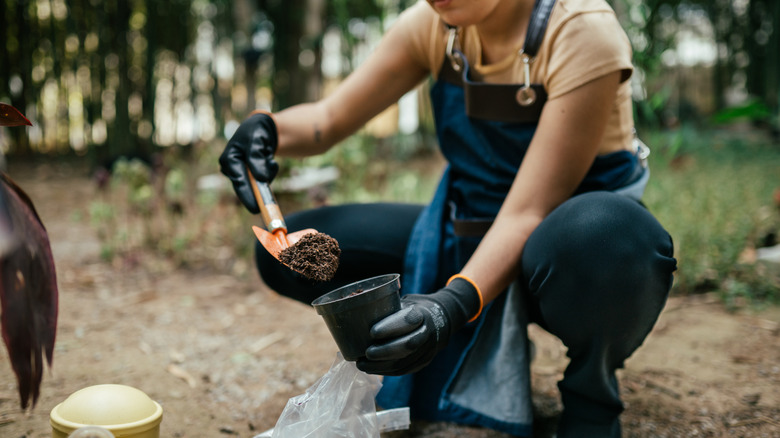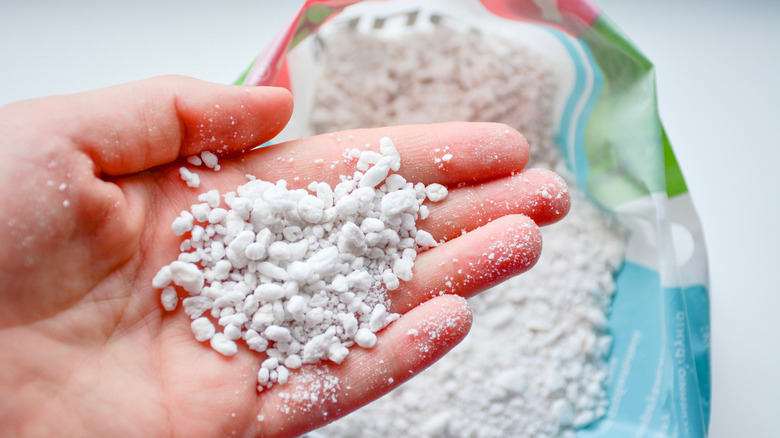The Type Of Rock You Can Add To Your Soil For Improved Drainage
We may receive a commission on purchases made from links.
If you've ever read the care instructions for a plant you just bought, you've likely come across the requirement for well-draining soil. What is proper drainage, and why is it so important? Soil that drains effectively is actually crucial for the survival of a wide variety of plants in all kinds of locations — from containers to garden beds to borders. It can be challenging to give your plants the drainage they need, especially when they're growing in large containers or sites with dense soil. How can you improve your soil's drainage and the overall health of your plants as a result? It may sound surprising, but there is a kind of rock that can aid soil drainage: perlite.
What is perlite, and how does it help your garden? In essence, perlite improves drainage and boosts plant growth when added to soil. Stagnant water sitting around or below the plant's roots can result in rot. The roots become waterlogged, and harmful fungi and sometimes bacteria or viruses start to grow. Symptoms of root rot may include wilting, discoloration, and plant death. You need to drain this water quickly. You can't add just any old rocks to the soil; their density may prevent the flow of water rather than improve it. Perlite allows liquid to pass easily through any soil you mix it into. It also helps break up dense, saturated clumps of dirt.
Benefits of perlite in soil and how to use it
The reason perlite is so useful as a soil additive for drainage is its construction. The material is essentially heated volcanic glass; the heating process causes the material to puff out and fill with holes. Water can pass through perlite more easily than it can through dense soil. Adding perlite to soil also adds pockets of space in the planting medium, improving the flow of oxygen, which is beneficial for the health of your plants. The roots of your plants can more easily spread through the soil, reducing the chance a plant will become root-bound and helping it extract more nutrients from the soil.
Perlite doesn't affect the pH of your soil, and it's unlikely to introduce disease because it's sterile and inorganic. To use perlite in your own in-ground or container garden, or for your houseplants, look for perlite made for both indoor and outdoor gardening, like Back to the Roots 100% Organic Perlite. Then simply add it into the soil at a 1:4 ratio before filling flower pots or garden beds with the mix. Perlite is light, so this will stop it from getting washed or blown away in extreme weather. Perlite doesn't introduce nutrients into the soil, so continue with your regular fertilization routines. Keep in mind, too, that perlite is a non-renewable resource. Use it sparingly or consider other amendments if you're committed to low-impact gardening.

